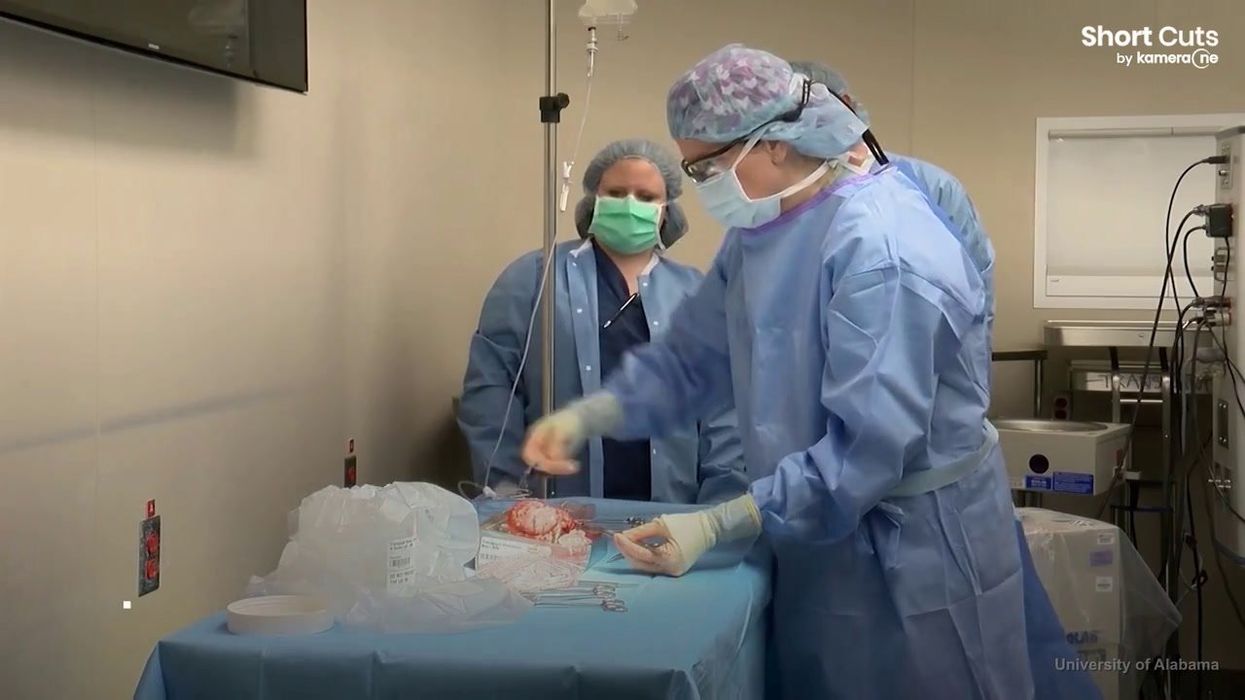Becca Monaghan
Oct 23, 2024
Experimental pig kidney transplant keeps brain-dead human alive for over a month
KameraOne - Short Cuts / VideoElephant
Scientists in China made a major breakthrough after reviving a pig's brain activity for almost an hour after death.
Physician Xiaoshun He of Sun Yat-Sen University in China and a team of researchers wanted to explore whether there's a method to reduce brain injury in a human after they have suffered cardiac arrest.
Published in EMBO Molecular Medicine, the team explained that sudden cardiac arrest "remains a leading cause of mortality, and brain injury is often followed by post-resuscitation death" due to restricted blood flow.
Previous studies have revealed the brain can only withstand five to eight minutes of ischemia (an inadequate amount of blood supply), making the window for successful resuscitation limited.
The study used 17 Tibetan minipigs and compared the inclusion of a liver in a loss of circulation.
One study saw two groups of pigs subject to brain ischemia for half an hour – one group also had liver ischemia and the other did not.
The control group had the least brain damage when the pigs' brains were examined. The other, which had not been subject to liver ischemia showed a significantly lower amount of brain damage.
Next, scientists incorporated an undamaged liver into the life support system that had been removed from an euthanised pig. They wanted to explore whether it had an impact on the timeframe of a successful resuscitation.
Again, the pigs were in groups: one with the basic life support system including an artificial lung and heart and the other with the liver, also known as 'liver-assisted brain normothermic machine perfusion.'
The system without the liver showed activity in the brain within the first 30 minutes before declining.
Researchers then explored different delays by connecting brains to the liver system at various intervals: 30 minutes, 50 minutes, an hour and four hours.
The results showed the longest interval at 50 minutes after the brain was deprived of blood. The brain had electrical activity and stayed in that state for around six hours before the experiment concluded.
Brains that had no oxygen for an hour experienced three hours of activity, suggesting to researchers that resuscitation may be successful with a functioning liver.
The groundbreaking new findings highlight the importance of the liver following cardiac arrest. More research into brain injury is needed to delve deeper into mortality rates and recovery.
How to join the indy100's free WhatsApp channel
Sign up for our free Indy100 weekly newsletter
Have your say in our news democracy. Click the upvote icon at the top of the page to help raise this article through the indy100 rankings.
Top 100
The Conversation (0)













